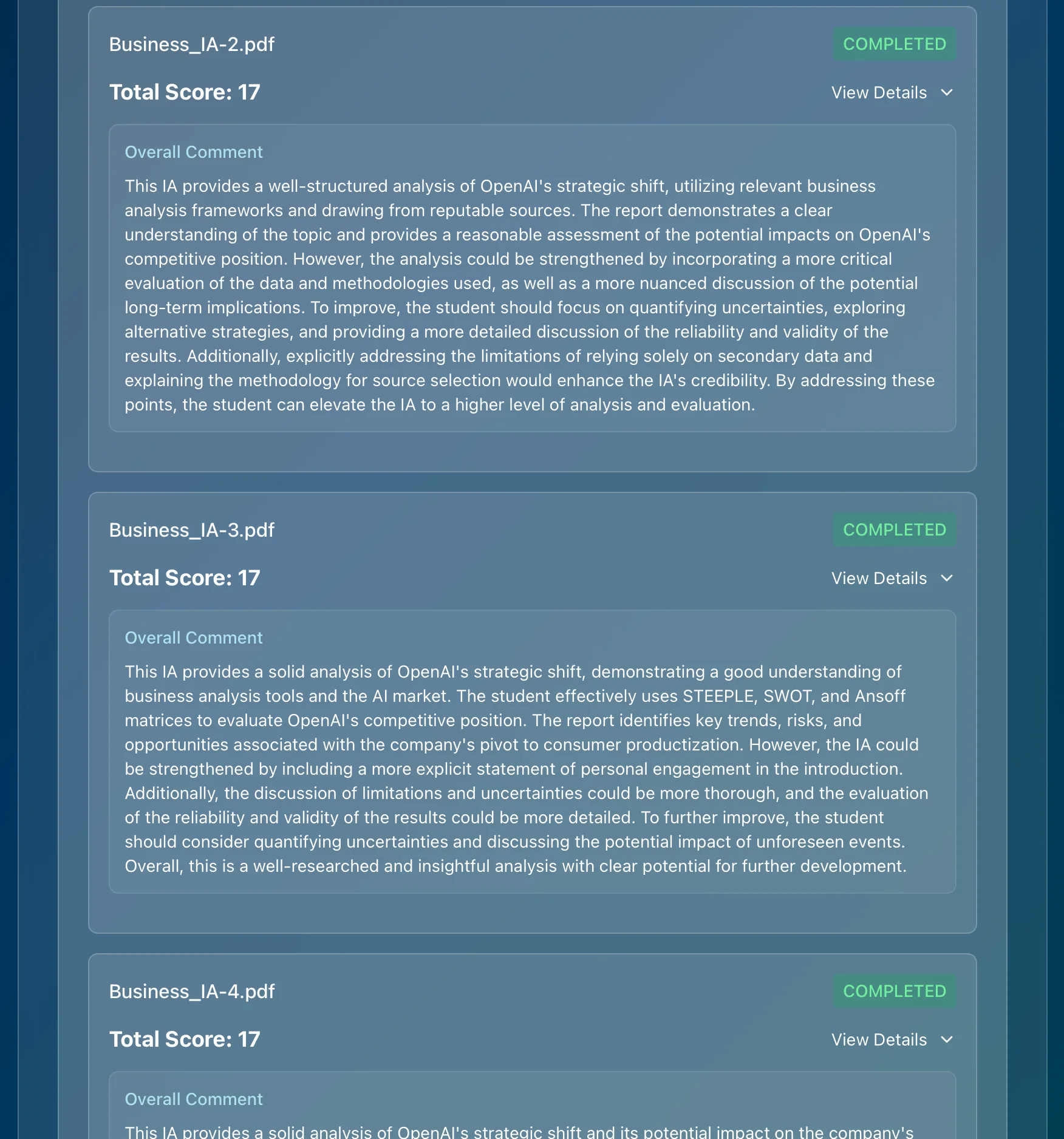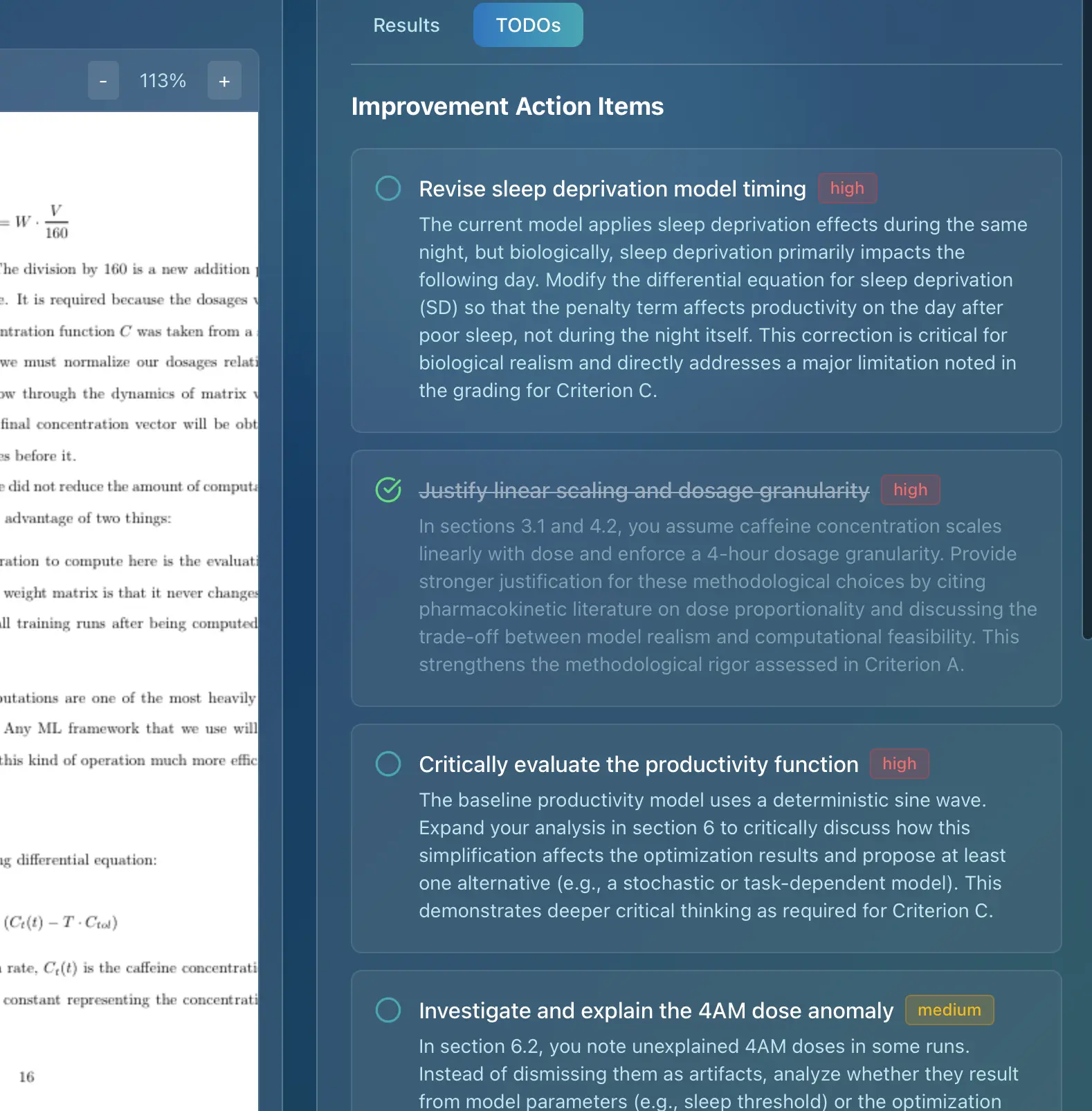Choosing a Location for Your Geography Extended Essay Fieldwork
Choosing the right location for your IB Geography Extended Essay fieldwork is a crucial first step towards a successful and rewarding research experience. The location will directly impact the feasibility of your research question, the data you can collect, and ultimately, the quality of your essay. This guide provides a comprehensive overview of how to select a location that aligns with your research interests, meets the IB's assessment criteria, and sets you up for success. We'll explore key considerations, common pitfalls, and advanced strategies to help you make an informed decision and maximize your chances of achieving a top score. Let's dive in and find the perfect place for your geographical investigation!
Introduction (Answer the Query Immediately)
The IB Geography Extended Essay (EE) is a significant undertaking, and selecting the right fieldwork location is paramount. Your location should be chosen with careful consideration of your research question, the accessibility of data, and the overall feasibility of conducting meaningful research. This guide will walk you through the process of choosing a location that not only sparks your interest but also allows you to meet the rigorous demands of the IB assessment criteria. We'll cover everything from brainstorming potential locations to evaluating their suitability based on factors like data availability, logistical constraints, and ethical considerations. By the end of this guide, you'll have a clear understanding of how to select a location that sets you up for success in your Geography EE.
Struggling with IB Assessments?
Get instant, detailed feedback on your work with AI that understands IB criteria.

Core Content Sections
Brainstorming Potential Locations
The first step in choosing a location is to brainstorm a list of potential options. Think about geographical phenomena that genuinely interest you. Are you fascinated by coastal erosion, urban sprawl, or the impact of tourism on local communities? Consider locations that exhibit these phenomena prominently.
- Start with the Familiar: Begin by thinking about places you know well – your hometown, a vacation spot, or a region you've studied in class. Familiarity can be an advantage, as you may already have some background knowledge and access to local resources.
- Consider Global Issues: Think about global geographical issues like climate change, deforestation, or urbanization. Identify regions that are particularly affected by these issues and could serve as compelling case studies.
- Use Maps and Atlases: Explore maps and atlases to identify regions with specific geographical features or phenomena. Look for areas with diverse landscapes, unique ecosystems, or interesting patterns of human activity.
Evaluating Location Suitability: Key Considerations
Once you have a list of potential locations, it's time to evaluate their suitability based on several key considerations:
- Accessibility and Logistics: Can you realistically travel to the location and conduct fieldwork there? Consider factors like travel costs, visa requirements, and the availability of accommodation and transportation. If the location is too remote or expensive to reach, it may not be a viable option.
- Data Availability: Is there sufficient data available to support your research? Consider both primary data (data you collect yourself through fieldwork) and secondary data (data collected by others, such as government agencies or research institutions). Ensure that you can access relevant data sources, such as climate records, population statistics, or environmental monitoring reports.
- Research Question Alignment: Does the location allow you to effectively address your research question? The location should exhibit the geographical phenomena you're interested in studying and provide opportunities to collect relevant data. For example, if you're studying the impact of tourism on coastal erosion, you'll need to choose a coastal location that experiences significant tourism and is susceptible to erosion.
- Ethical Considerations: Consider any ethical issues associated with conducting research in the location. Are there any potential risks to the environment or local communities? Do you need to obtain permission from local authorities or landowners? Ensure that your research is conducted in a responsible and ethical manner, respecting the rights and well-being of all stakeholders.
- Safety and Security: Assess the safety and security of the location. Are there any potential risks to your personal safety, such as crime, political instability, or natural disasters? Take appropriate precautions to ensure your safety and security while conducting fieldwork.
Examples of Suitable Locations and Research Questions
Here are a few examples of suitable locations and corresponding research questions:
- Location: A coastal town in the Mediterranean.
- Research Question: To what extent has tourism contributed to coastal erosion in [Town Name], and what are the implications for the local economy?
- Location: A rapidly growing city in Southeast Asia.
- Research Question: How has urban sprawl impacted the provision of essential services (e.g., water, sanitation, transportation) in [City Name]?
- Location: A rural community in the Amazon rainforest.
- Research Question: What are the socio-economic and environmental impacts of deforestation on the indigenous community of [Community Name]?
Developing a Focused Research Question
The location and research question are intrinsically linked. A well-defined research question is crucial for a successful Geography EE.
- Specificity is Key: Avoid overly broad questions. Instead of asking "What are the effects of climate change?", focus on a specific impact in a particular location, such as "How has rising sea level impacted the mangrove ecosystems of [Coastal Area]?"
- Analytical Approach: Your research question should encourage analysis and evaluation, not just description. Aim to explore relationships, assess impacts, or evaluate the effectiveness of different strategies.
- Feasibility: Ensure that your research question is feasible to answer within the scope of the EE. Consider the time and resources available to you, as well as the accessibility of data.
Primary vs. Secondary Data: Striking the Right Balance
Your EE should incorporate both primary and secondary data. Primary data is collected directly by you through fieldwork, while secondary data is obtained from existing sources.
- Primary Data Collection Techniques: Common primary data collection techniques in Geography include:
- Surveys and Questionnaires: Gather information from local residents or stakeholders.
- Interviews: Conduct interviews with experts or key informants.
- Field Observations: Record observations of geographical phenomena in the field.
- Measurements: Collect quantitative data, such as soil samples, water quality measurements, or vegetation surveys.
- Secondary Data Sources: Reliable secondary data sources include:
- Government Reports and Statistics: Access data from government agencies on topics like population, economy, and environment.
- Academic Journals and Research Papers: Consult scholarly articles for in-depth analysis and research findings.
- Maps and GIS Data: Use maps and GIS data to visualize spatial patterns and relationships.
- Balance is Crucial: Aim for a balance between primary and secondary data. Primary data provides firsthand evidence and allows you to develop your own insights, while secondary data provides context and supports your analysis. As the rubric states, a balance between primary and secondary sources is needed to achieve a 5-6 mark in Criterion A.
Common Challenges/Mistakes Section
Many students face common challenges when choosing a location for their Geography EE. Here are some common mistakes to avoid:
- Choosing a Location That's Too Broad: Selecting a location that's too large or diverse can make it difficult to focus your research and collect meaningful data. Opt for a smaller, more manageable area that allows you to delve into specific issues in detail.
- Ignoring Logistical Constraints: Failing to consider logistical constraints, such as travel costs, visa requirements, and accommodation availability, can derail your research plans. Ensure that you can realistically access the location and conduct fieldwork there.
- Overlooking Ethical Considerations: Neglecting ethical considerations can damage your reputation and undermine the credibility of your research. Always obtain necessary permissions, respect local customs, and protect the rights and well-being of all stakeholders.
- Failing to Pilot Test Your Methodology: Not pilot testing your methodology before conducting full-scale fieldwork can lead to wasted time and effort. Conduct a pilot study to test your data collection techniques and identify any potential problems.
Pro Tip: Get AI-Powered Grading
Stop second-guessing your grades. Get instant feedback aligned with official IB rubrics.

Advanced Tips/Strategies Section
To take your Geography EE to the next level, consider these advanced tips and strategies:
- Engage with Local Experts: Reach out to local experts, such as university professors, government officials, or community leaders, for guidance and support. They can provide valuable insights, access to data, and introductions to key informants.
- Use GIS Software: Utilize GIS (Geographic Information System) software to analyze spatial data and create maps. GIS can help you visualize patterns, identify relationships, and communicate your findings effectively.
- Apply Theoretical Frameworks: Incorporate relevant theoretical frameworks from geography or related disciplines to provide a deeper understanding of your research topic. For example, you could use dependency theory to analyze the impacts of globalization on a developing country.
- Conduct a SWOT Analysis: Perform a SWOT (Strengths, Weaknesses, Opportunities, Threats) analysis of your chosen location to identify its key characteristics and potential challenges. This can help you refine your research question and develop a more focused methodology.
- Reflect on Your Research Process: Throughout the research process, reflect on your decision-making, skills acquired, and challenges faced. Document these reflections in your Reflections on Planning and Progress Form (RPPF) to demonstrate your engagement with the research process, as required by Criterion E.
Technology and Modern Assessment Section
Technology is transforming the way we conduct geographical research and assess student work. GIS software, remote sensing data, and online databases provide access to vast amounts of information that can enhance your research. Furthermore, AI-powered tools are revolutionizing the assessment process, providing teachers with valuable insights and helping students improve their work.
Marksy, as a leading AI grading assistant, helps teachers provide consistent, detailed feedback on IB Geography Extended Essays. By leveraging official IB rubrics, Marksy ensures that assessments are accurate, fair, and aligned with the IB's standards. The platform offers criterion-by-criterion feedback, highlighting areas where students excel and areas where they can improve. This not only saves teachers valuable time but also helps students understand exactly how to meet the requirements of the EE and achieve a higher score. Marksy uses official IB criteria to ensure accuracy and fairness, providing detailed feedback aligned with the rubric. This ensures students understand how to improve based on IB standards.
Conclusion with Clear Next Steps
Choosing the right location for your IB Geography Extended Essay fieldwork is a critical decision that can significantly impact the success of your research. By carefully considering factors like accessibility, data availability, research question alignment, and ethical considerations, you can select a location that sets you up for a rewarding and enriching experience. Remember to brainstorm potential locations, evaluate their suitability, develop a focused research question, and strike a balance between primary and secondary data. Avoid common mistakes, engage with local experts, and utilize technology to enhance your research.
Next Steps:
- Brainstorm potential locations: Create a list of locations that align with your interests and the IB Geography curriculum.
- Evaluate location suitability: Assess each location based on the key considerations outlined in this guide.
- Refine your research question: Develop a focused and analytical research question that is feasible to answer within the scope of the EE.
- Plan your fieldwork: Develop a detailed plan for your fieldwork, including data collection techniques, timelines, and logistical arrangements.
- Start writing your EE: Begin writing your EE, incorporating both primary and secondary data to support your analysis.